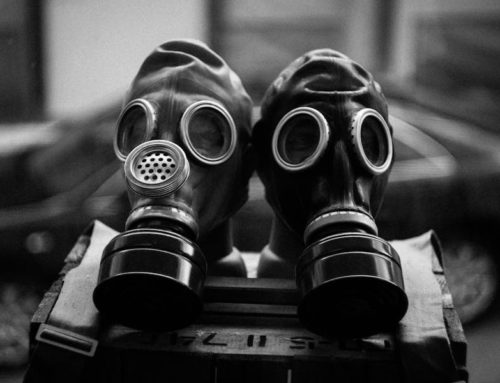Adequate sleep is vital for proper brain function and optimal body system operation. Many factors can disrupt sleep and contribute to sleep disorders. The inability to fall or stay asleep, narcolepsy, sleep apnea, and restless legs syndrome can result.
Sleep disruptions can increase nervous system activity, leaving the body in a perpetual state of “fight or flight.” Sleep deprivation can lead to emotional distress, memory issues, mood disorders, pain, and reduced quality of life.
It is important for health care practitioners to be aware of and proactive in managing their patients’ sleep issues.
Negative Effects of Sleep Deprivation
Sleep loss is prevalent and often missed by physicians as a treatable health problem. Failure to get enough sleep can lead to serious medical conditions such as:
- Anxiety
- Depression
- Diabetes mellitus
- Hypertension
- Insulin resistance
- Obesity
- Obstructive sleep apnea
These medical and psychiatric conditions can put your patient at risk for heart attack and stroke. Other consequences of chronic sleep loss include increased mortality, lower quality of life, and poor performance during activities. This can result in increased accidents and injuries. Sleep loss has a profound effect on human health and well-being.
Major Sleep Disorders
Sleep disorders can have serious effects on patients’ health and quality of life. Although some sleep disorders are challenging to treat, most can be managed with adequate interventions. The more common of sleep disorders include:
- Insomnia — Insomnia means having difficulty falling or staying asleep. Insomniacs have substandard job performance, more health problems, and more-frequent accidents.
- Restless legs syndrome — Restless legs syndrome is a common, chronic movement disorder of the limbs in which people have an irresistible urge to move the legs. This is often associated with abnormal, non-painful sensations that start at rest can improve with activity. The symptoms are usually worse at night.
- Sleep apnea — Sleep apnea consists of episodes of complete or partial collapse of the airway with a decrease in oxygen and arousal from sleep. This disturbance results in nonrestorative sleep. Other symptoms include disruptive snoring and excessive daytime sleepiness. Sleep apnea can affect cardiovascular and mental health, plus overall quality of life.
What Causes Sleep Issues?
Chinese body clock and detox organs
According to traditional Chinese medicine, the body has a strict schedule of self-care. It regulates various organs within the body at specific times of day and night.
Is a patient having trouble sleeping at a specific time, or feeling “off” at a specific time each day? The Chinese body clock is one tool to discover the meaning behind these imbalances.
- 9 pm to 11 pm: Triple burner (or triple heater)
This term pertains to the endocrine system, which controls homeostasis and enzyme replenishing. Sleep is good during this period so the body can conserve energy for the following day. It can be helpful to filter, detox, and cleanse the body to help with this process.
- 11 pm to 1 am: Gallbladder
If someone wakes up this early in the sleep cycle, according to Chinese medicine, the gallbladder may be struggling. Look to better support the drainage funnel, because sluggish digestion can make it difficult for the gallbladder to empty. Advanced TUDCA may help support gallbladder function, as it promotes healthy bile flow.
- 1 am to 3 am: Liver
Without a well-functioning liver, every other body process and organ will suffer. Sometimes, the liver works overtime to handle the influx of toxicity and unwanted materials. So if a patient wakes up often during these hours of the night, the liver may need a helping hand. In this situation, supplementing with KL Support can boost liver function. Besides this, you can look at other liver-supportive nutrients.
- 3 am to 5 am: Lungs
This time of the morning is when the lungs are at their peak energy. It is also the time of deepest sleep and when the lungs detoxify if they’re working as they should. Look to support lung health when there are insufficient oxygen levels (hypoxia) to make sure the lungs are functioning as they should.
- 5 am to 7 am: Large intestine
This period is when your patients should give themselves enough time to honor the elimination function. If a patient is not moving the bowels several times a day, there are herbs that can help, as well as Bowel Mover.
- 7 am to 9 am: Stomach
Chinese medicine says that it is important to make breakfast the biggest meal of the day to optimize digestion and absorption. Warm meals high in nutrition are best. If the stomach is not digesting well, it may need some help to function at its best.
Toxicity
Another major reason for sleep issues is toxicity, especially mold toxicity. Human exposure to molds and mycotoxins, such as in water-damaged buildings, can damage the nervous system. This exposure is associated with respiratory issues in all age groups. It can also cause insomnia.
You may help your patients remove toxins with Carbon Technology-based binders. These binders can infiltrate all the cells of the body to remove toxins. Think of Carbon Technology as a sponge that absorbs toxins and eliminates them from your patient’s body. Besides this, it also supports healthy bacteria in the gut. BioToxin Binder can help your patients remove unwanted environmental toxins, including mycotoxins.
Parasites
Studies have shown that mammalian species that sleep for longer periods have a reduced level of parasitic infection. Species with longer sleep durations — cats for example — have stronger immune systems and are more protected from parasites.
Increases in sleep durations are associated with better immune defenses. When someone is sleep deprived, the immune system can weaken. It can make an individual more susceptible to parasites and other pathogens. It becomes a vicious cycle from lack of sleep, a weakened immune response, and back to poor sleep.
Lyme disease
Sleep disturbances and fatigue are common for people with Lyme disease. In one study, four out of six people with Lyme disease had moderate to severe trouble sleeping due to pain and bad dreams.
People with chronic Lyme disease often have fewer hours of sleep and less restorative sleep. Poor sleep may worsen other symptoms. Poor sleep, illness, and chronic stress contribute to disease progression. This compromises the immune system and causes fatigue, which lessens resistance to disease.
So for those with Lyme disease, better sleep and better health likely start with detoxification. Removing the Lyme from the body, as well as any coinfections, will go a long way to restoring normal body functions. Some natural herbs may help this detox process, along with recommending Lyme-killing herbs and tinctures, such as IS-BORR.
Natural Support for Sleep
Some natural treatments can help your patient target certain causes of poor sleep. Restore health with detox, opening drainage pathways, binding toxins, and providing essential nutrients.
- BC-ATP can supercharge energy on a cellular level. It not only can improve energy levels, but can also detoxify to maximize health results.
- CT-Minerals help deliver nutrients to the brain, which supports alertness, increased energy, and focus.
- The glymphatic system in the brain drains during sleep, which makes sleeping essential for the elimination of waste products. LymphActiv creates the lymphatic action needed to support motion, which will in turn support sleep.
- Melatonin helps promote sleep, lessens fatigue from jet lag, and helps regulate sleep during rotating shift work. It may reduce the time it takes to fall asleep and reset the body’s sleep/wake cycle. Because melatonin has low side-effect risk, melatonin supplementation can improve sleep.
There are natural ways to improve sleep and heal underlying medical conditions that may be contributing to poor sleep. Addressing sleep can also help with other issues that come from sleep deprivation.







